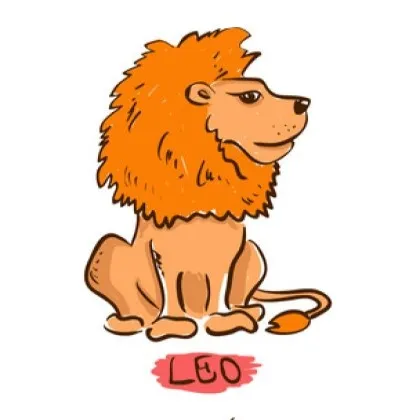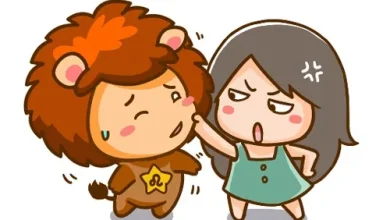Zodiac Personality Revealed 1: Why Are Fewer Chinese People Typical Leos?

Why Are Fewer Chinese People Typical Leos?
From a purely astrological perspective, the distribution of the 12 zodiac signs is roughly equal. However, due to cultural and collective personality influences, people in different countries may not exhibit the textbook traits of their sun signs. This explains why many individuals feel their zodiac descriptions don’t quite match their personalities.
In China, traits associated with Libra (balanced), Virgo (perfectionist), and Capricorn (pragmatic) are more prevalent—even among those whose sun signs differ. Conversely, fewer Chinese embody the boldness of Leo, the independence of Aquarius, or the free-spiritedness of Sagittarius. Many born under these signs even question the accuracy of Western astrology for the “Chinese context.” So, why is this the case? Let’s analyze the reasons behind the scarcity of typical Leo personalities in China.
1. Chinese Culture Discourages Individual Heroism
While Chinese mythology and history celebrate heroic figures like Nüwa, Sun Wukong, Guan Yu, and Yue Fei, their triumphs were always tied to collective efforts—fighting for a team or nation. Unlike Western narratives where a lone hero saves the world, Chinese heroes operate within a framework of collective-driven individualism. This cultural distinction was vividly portrayed in the blockbuster The Wandering Earth.
2. Agrarian vs. Maritime Cultural Roots
Astrology originates from the West, shaped by maritime cultures like the Aegean. Sailors had to rely on self-sufficiency, as ships operated independently at sea. In contrast, agrarian societies like China’s thrived on communal labor—farmers depended on teamwork to survive. Leos, symbolized by the solitary lion (not pack-hunting wolves), embody individualism. In Eastern societies, such traits are often met with skepticism, as teamwork is deeply ingrained.
3. “One Mountain Can’t Shelter Two Tigers”
Western cultures admire Leo-like confidence and even celebrate alliances among alpha personalities. However, Chinese wisdom pragmatically states, “One mountain can’t shelter two tigers.” Historically, centralized agrarian and political systems discouraged power-sharing between equals. Even today, overtly Leo-like dominance in workplaces invites envy from peers and suspicion from superiors.
4. Flamboyance Equals Self-Destruction
In Romance of the Three Kingdoms, the heroic but flamboyant Guan Yu fell due to overconfidence. Classics like the I Ching and Analects equate ostentation with downfall. While Western societies tolerate bold personalities (partly due to abundant career alternatives), China’s gig economy is still nascent. Only recently have expressive, individualistic lifestyles gained traction.
5. Is Enjoyment Inherently Negative?
The Chinese adage “Diligence brings reward; play brings no gain” reflects a cultural bias against leisure. Westerners are often baffled by East Asian work ethics—why sacrifice rest and enjoyment? Leos, ruled by the House of Pleasure, embrace indulgence, spending lavishly on luxuries. Yet, even Chinese Leos prioritize frugality and relentless work. Why?
This dichotomy stems from contrasting philosophies: Leo’s Western individualism encourages living in the moment, while Capricorn’s Eastern collectivism emphasizes legacy-building. Chinese values demand contributions to family and society, often at the expense of personal gratification.
Conclusion
Individualism, hedonism, and flamboyance—hallmarks of a Leo—are rarer in China, where collective and familial duties take precedence. This cultural alignment with Capricorn-like resilience over Leo’s boldness explains why typical Leos are fewer among the Chinese.







